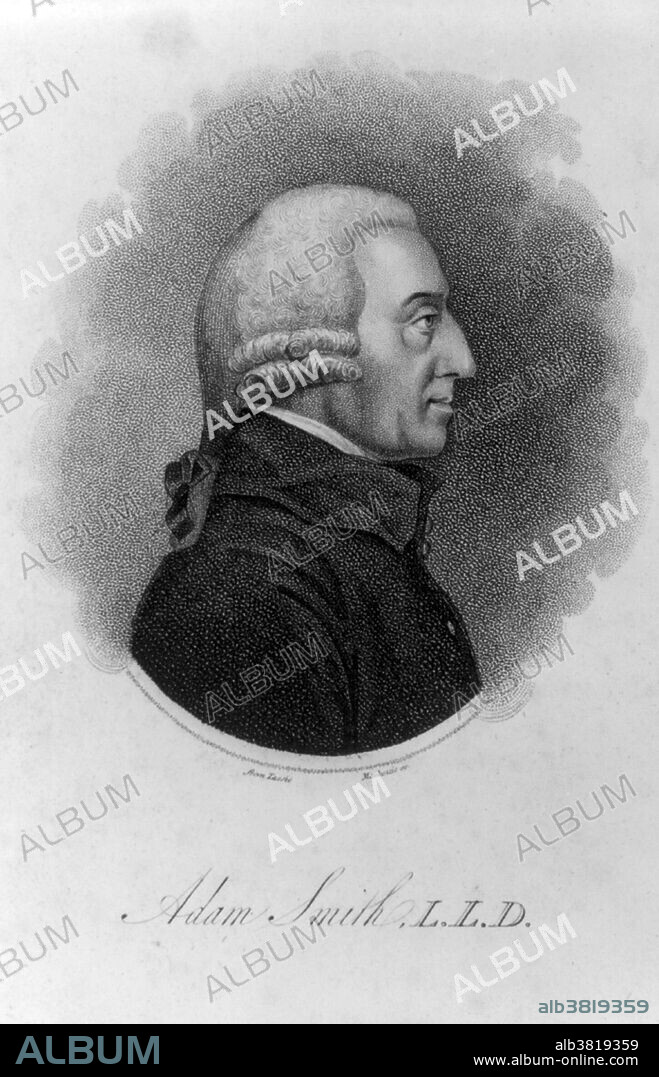alb3819359
Adam Smith, Scottish Philosopher and Economist

|
Zu einem anderen Lightbox hinzufügen |
|
Zu einem anderen Lightbox hinzufügen |



Haben Sie bereits ein Konto? Anmelden
Sie haben kein Konto? Registrieren
Dieses Bild kaufen

Titel:
Adam Smith, Scottish Philosopher and Economist
Untertitel:
Siehe automatische Übersetzung
Adam Smith (June 5, 1723 - July 17, 1790) was a Scottish moral philosopher and a pioneer of political economy. He studied social philosophy at the University of Glasgow and at Balliol College in the University of Oxford. After graduating, he delivered a series of public lectures at Edinburgh, leading him to collaborate with David Hume during the Scottish Enlightenment. He obtained a professorship at Glasgow teaching moral philosophy, and during this time he wrote and published The Theory of Moral Sentiments. In his later life, he took a tutoring position that allowed him to travel throughout Europe, where he met other intellectual leaders of his day. Smith then returned home and spent the next ten years writing An Inquiry into the Nature and Causes of the Wealth of Nations, publishing it in 1776. Usually abbreviated as The Wealth of Nations, is considered his magnum opus and the first modern work of economics. Smith is cited as the father of modern economics and is still among the most influential thinkers in the field of economics today. He died in 1790 at the age of 67.
Bildnachweis:
Album / LOC/Science Source
Freigaben (Releases):
Model: Nein - Eigentum: Nein
Rechtefragen?
Rechtefragen?
Bildgröße:
3000 x 4661 px | 40.0 MB
Druckgröße:
25.4 x 39.5 cm | 10.0 x 15.5 in (300 dpi)
Schlüsselwörter:
18. JAHRHUNDERT • 18. JH. • BERÜHMT • BERÜHMTE PERSÖNLICHKEIT • EUROPAEER (F M) • EUROPAEER • EUROPÄER (F M) • EUROPÄER • EUROPÄISCH • ILLUSTRATION • ILLUSTRATIONS • MANN • MORALPHILOSOPH • NOTABEL • OEKONOMIE • PERSON • PERSöNLICHKEITEN • PERSÖNLICHKEITEN • PHILOSOPHIE • PORTRAIT • PROMINENZ • WIRTSCHAFTSSYSTEME • WISSENSCH.: PHILOSOPHIE • ÖKONOMIE
 Pinterest
Pinterest Twitter
Twitter Facebook
Facebook Link kopieren
Link kopieren Email
Email
